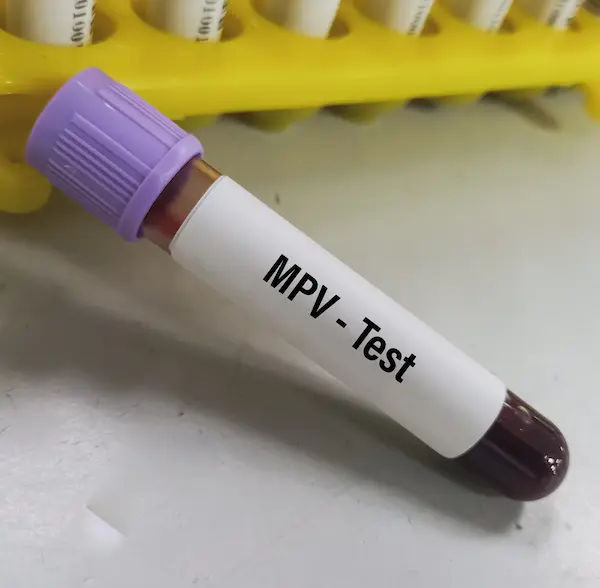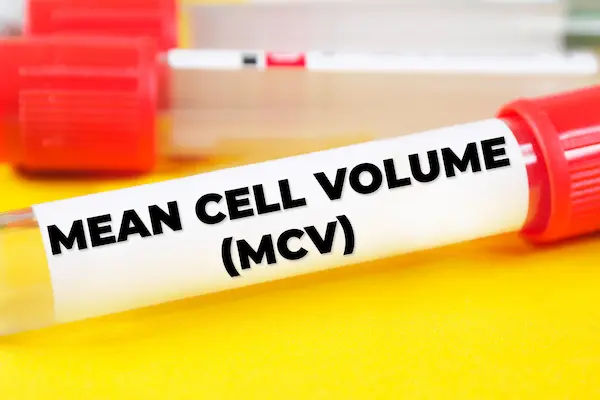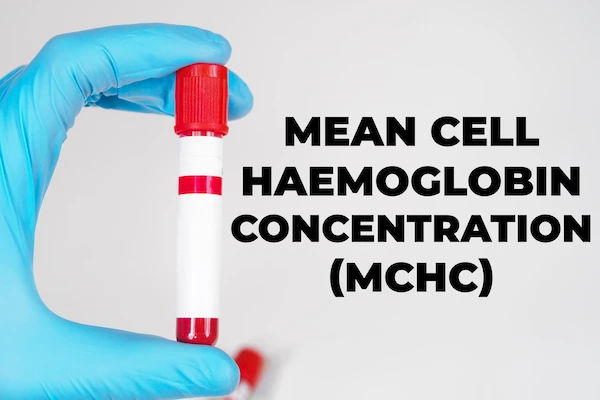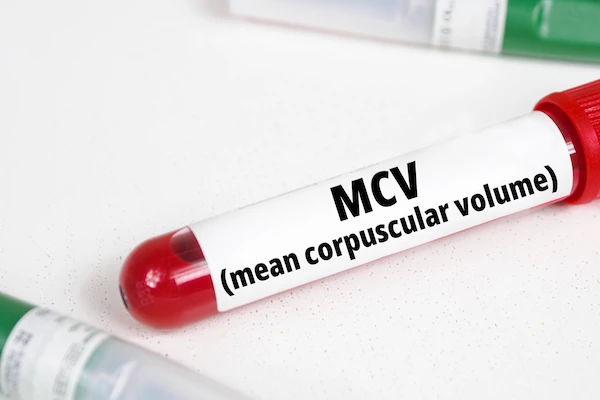Understanding Low MCV Blood Test Results
Know about the low MCV blood test, the causes, symptoms and how much level of MCV can be diagnosed. Learn about the tips to use for a healthy MCV.

Written by Dr. Rohinipriyanka Pondugula
Reviewed by Dr. Md Yusuf Shareef MBBS
Last updated on 29th Jul, 2025

If you’ve recently had a blood test and your doctor mentioned that your Mean Corpuscular Volume (MCV) is low, you might be wondering what that means and whether it’s a cause for concern. So, this article will help you understand low MCV in simple terms, why it happens, and what you can do about it.
What Is MCV?
MCV stands for Mean Corpuscular Volume, which measures the average size of your red blood cells (RBCs). These cells carry oxygen from your lungs to the rest of your body. If your MCV is low, it means your red blood cells are smaller than normal. This condition is called microcytosis.
A normal MCV range is typically between 80 and 100 femtoliters (fL). If your MCV is below 80 fL, it’s considered low.
Consult a Top General Physician for advice
What Causes Low MCV?
Several factors can lead to smaller-than-normal red blood cells. The most common causes include:
1. Iron Deficiency Anaemia
This is the most common reason for low MCV. Your body needs iron to make haemoglobin, a protein in red blood cells that carries oxygen. Without enough iron, your body produces smaller RBCs.
Possible Causes of Iron Deficiency:
- Not eating enough iron-rich foods (like leafy greens, meat, beans)
- Blood loss (heavy periods, ulcers, or internal bleeding)
- Poor iron absorption (due to gut issues like celiac disease)
2. Thalassemia (A Genetic Blood Disorder)
Thalassemia affects hemoglobin production, leading to smaller red blood cells. It’s inherited, so if someone in your family has it, you might be at risk.
3. Chronic Diseases
Conditions like kidney disease, infections, or autoimmune disorders can interfere with red blood cell production, leading to low MCV.
4. Lead Poisoning
Exposure to lead (from contaminated water, paint, or certain jobs) can damage red blood cells and lower MCV.
5. Vitamin B6 Deficiency
Though rare, a lack of vitamin B6 can affect red blood cell size.
Symptoms of Low MCV
If your MCV is low due to anaemia or another condition, you might experience:
- Fatigue or weakness (feeling tired all the time)
- Pale skin or nails
- Shortness of breath (especially during physical activity)
- Dizziness or lightheadedness
- Cold hands and feet
- Brittle nails or hair loss (in severe iron deficiency)
Some people with mild low MCV may not notice any symptoms, which is why regular blood tests are important.
How Is Low MCV Diagnosed?
Your doctor will likely order a Complete Blood Count (CBC) test, which includes MCV. If your MCV is low, they may recommend further tests like:
- Iron studies (to check iron levels)
- Haemoglobin electrophoresis (to check for thalassemia)
- Vitamin B6 or B12 tests
- Tests for lead exposure (if suspected)
How to Improve Low MCV
The treatment depends on the underlying cause. Here’s what you can do:
1. If It’s Iron Deficiency Anaemia
Eat iron-rich foods:
- Heme iron (better absorbed): Red meat, chicken, fish
- Non-heme iron: Spinach, lentils, beans, fortified cereals
- Pair iron with vitamin C: Helps absorption (e.g., orange juice with spinach)
- Avoid tea/coffee with meals: They block iron absorption
- Iron supplements (if prescribed): Take them as directed
2. If It’s Thalassemia
- Mild cases may not need treatment.
- Severe cases may require blood transfusions or other medical care.
3. If It’s Due to Chronic Disease
Managing the underlying condition (like kidney disease) can help.
4. General Tips for Better RBC Health
- Stay hydrated
- Eat a balanced diet (rich in vitamins B6, B12, and folate)
- Avoid smoking and excessive alcohol
When to See a Doctor
If you have symptoms like extreme fatigue, dizziness, or unexplained paleness, consult a doctor. Also, if your blood test shows low MCV, your doctor can help determine the cause and recommend the right treatment.
Final Thoughts
A low MCV isn’t always serious; the causes of Low MCV are chronic diseases, thalassemia, etc, and symptoms include fatigue, weakness and pale skin, but it shouldn’t be ignored. Simple dietary changes or supplements can often correct it
Consult a Top General Physician for advice
Consult a Top General Physician for advice

Dr. Jawwad Mohammed Kaleem
General Practitioner
4 Years • MBBS
Hyderabad
Apollo 24|7 Clinic, Hyderabad

Dr. Suraja Nutulapati
General Physician/ Internal Medicine Specialist
10 Years • MBBS, MD (Internal Medicine)
Hyderabad
Apollo 24|7 Clinic, Hyderabad
(975+ Patients)

Dr. Mohammed Kamran
General Practitioner
5 Years • MBBS, FIDM
Nashik
Apollo 24|7 Clinic - Maharashtra, Nashik

Dr. Vasanthasree Nair
General Practitioner
15 Years • MBBS
Angamaly
Apollo 24|7 Clinic - Kerala, Angamaly
(525+ Patients)

Dr Divya Lekha Gunta
General Practitioner
10 Years • MBBS, MD (Pathology)
Visakhapatnam
Apollo 24|7 Clinic - Andhra Pradesh, Visakhapatnam
Consult a Top General Physician for advice

Dr. Jawwad Mohammed Kaleem
General Practitioner
4 Years • MBBS
Hyderabad
Apollo 24|7 Clinic, Hyderabad

Dr. Suraja Nutulapati
General Physician/ Internal Medicine Specialist
10 Years • MBBS, MD (Internal Medicine)
Hyderabad
Apollo 24|7 Clinic, Hyderabad
(975+ Patients)

Dr. Mohammed Kamran
General Practitioner
5 Years • MBBS, FIDM
Nashik
Apollo 24|7 Clinic - Maharashtra, Nashik

Dr. Vasanthasree Nair
General Practitioner
15 Years • MBBS
Angamaly
Apollo 24|7 Clinic - Kerala, Angamaly
(525+ Patients)

Dr Divya Lekha Gunta
General Practitioner
10 Years • MBBS, MD (Pathology)
Visakhapatnam
Apollo 24|7 Clinic - Andhra Pradesh, Visakhapatnam




